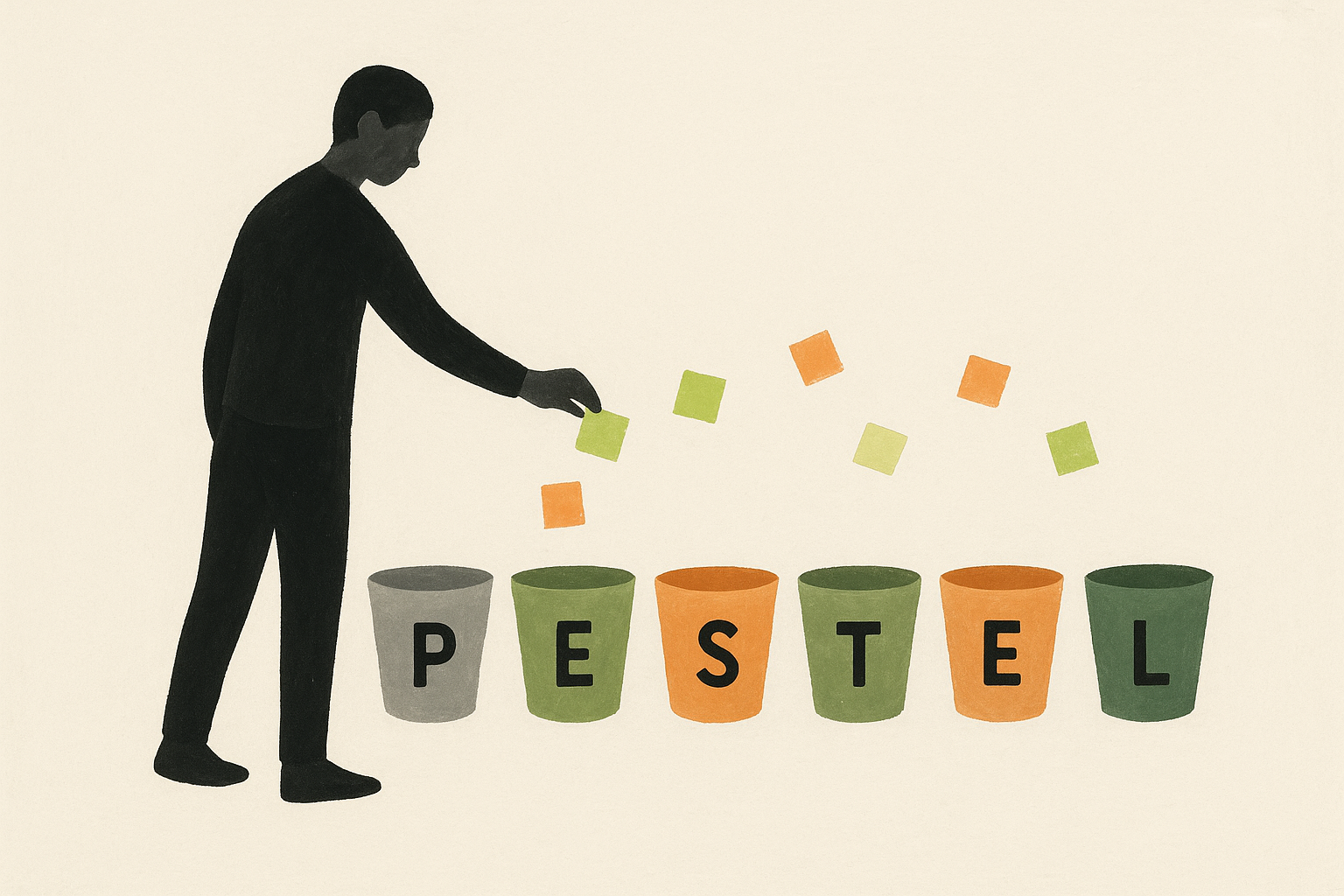The three horizons model is a practical foresight framework that helps structure how organizations think about the future. It provides a simple yet powerful way to connect today’s operations, emerging changes, and long-term possibilities. When applied in horizon scanning, it turns scattered insights into a coherent view of change over time.
Understanding the three horizons model
The model divides the future into three overlapping “horizons.”
- Horizon 1 represents the current system — how things work today. It focuses on established practices, business models, and core operations.
- Horizon 2 captures transitional innovations that challenge the status quo. It includes emerging trends and early signals of disruption that could shape what comes next.
- Horizon 3 looks further ahead, toward visionary possibilities and entirely new paradigms that could redefine an industry or society.
Linking the horizons to horizon scanning
Horizon scanning identifies weak signals, trends, and drivers of change across timeframes. The three horizons model helps categorize these findings:
- Signals of improvement or optimization often belong to Horizon 1.
- Signals of emerging disruption or early adoption align with Horizon 2.
- Signals representing transformative possibilities or radical change fit Horizon 3.
This approach makes it easier to prioritize insights, communicate time horizons to stakeholders, and build shared understanding around what changes matter most.
From scanning to strategy
By framing scanning results within the three horizons, organizations can move from observation to action. For example, a new AI technology might appear as a Horizon 2 signal – prompting pilot projects today and readiness for broader shifts tomorrow. The model encourages balancing short-term efficiency with long-term innovation, helping foresight teams connect daily decisions to future ambitions.
Applying the framework with a foresight platform
In practice, applying the three horizons model becomes more powerful when supported by a foresight platform like FIBRES. Digital foresight tools help structure, visualize, and share scanning insights across the organization.
The benefits of a dedicated scanning hub include:
- Collecting and categorizing signals from multiple sources in one place.
- Tagging and clustering insights according to Horizon 1, 2, or 3 to see how change unfolds over time.
- Visualizing connections between trends, technologies, and strategic priorities.
- Collaborating with stakeholders, aligning different perspectives around a shared future view.
- Updating continuously, ensuring that new signals automatically enrich and refine the horizons map.
Using a foresight platform ensures that the three horizons model is not just a conceptual exercise but a living framework that evolves with new information, supports decisions, and helps maintain long-term foresight discipline.


